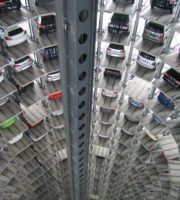There is no doubt our world is being impacted by human footprints like carbon emissions. Not only do emissions contribute on a worldwide level to negative ecological outcomes such as climate change, but also on a more individual and economic level as living in a non-eco-friendly way can raise household costs.
As of 2019, the United States’ main source of energy consumption came from fossil fuels like petroleum, while only 11% came from renewable energy.
It’s easy to believe that as an individual your actions don’t make a significant difference in energy waste, and that reducing our problem has to be tackled on a systemic level.
But while large industries, with their high-demand utilities like the industrial air conditioning unit, certainly make an impact, most people don’t realize the impact of energy consumption in their own homes, and every little bit helps. There are many ways you can make your home more energy-efficient, but if you’re not sure where to get started, let’s look at a few practical tips.
1. A Programmable Thermostat
Did you know that every degree your thermostat is turned down will use 1% less energy? With that in mind, there is a contribution you can make by running your thermostat only when you need to and turning it off when you leave.
A programmable thermostat is the easiest way to maintain the right temperature in the home according to what time of day it is. For example, programming your thermostat to run 10 degrees cooler at night will use 10% less energy while you are asleep under your covers and don’t need the house to be as warm.
2. Check for Leaks
In the chance you have an older home and detect a draft from the windows, or have a broken window seal causing foggy windows, chances are you are using more energy to compensate for the leak. Older windows wear over time and do not seal as well as newly-installed windows.
There are many kinds of good quality windows and window sills, but vinyl windows are superior in their thermal protection compared to other windows and also require less maintenance. Check for leaks around windows and doors in your home, because if air is escaping or getting in, it could cause your HVAC system to work overtime.
3. Replace Old Appliances
If you’re not sure how old the appliances in your house are, they could be using an excessive amount or more energy than you realize. A refrigerator over twenty years old can use up to three times more energy than an energy-efficient model manufactured today. And at 12 cents per kWh, you could end up saving $150 a year on simply buying a new fridge.
Not only does that contribute to energy waste, but it is also contributing to higher utility bills within your home.
If you are worried about the investment of replacing old appliances, just know that in the case of buying a new fridge over keeping the old one, that is a 7–9 year payoff with a higher efficiency rate. Look for appliances with the Energy Star logo on them to find something that works better for you, and the environment.
If you’re not yet in a financial situation to purchase new appliances at the moment, a few small steps you can take towards reducing energy waste include using cold water when you wash clothes, waiting for the dishwasher to be completely full before running a cycle, or changing out any standard incandescent light bulbs for compact fluorescent light bulbs.
4. General Maintenance
Keeping your HVAC system clean and well-maintained will help to improve energy efficiency within your home by removing any blockage and by sealing any leaks to allow air and heat to flow freely.
The best way to make sure your HVAC system is working properly is to hire a professional. General maintenance of your HVAC system is a good assurance that you are getting the most out of your air flow. A technician can also clean out your air ducts (recommended every 2–3 years) to improve the flow of air into your home, so you don’t won’t have to keep it running as often.
There are many ways to cut down the efficiency cost of living at home. Most of them are simple actions that are easy to overlook, but if maintained properly, they can make a substantial impact on your lifestyle, bank account, and the environment.







